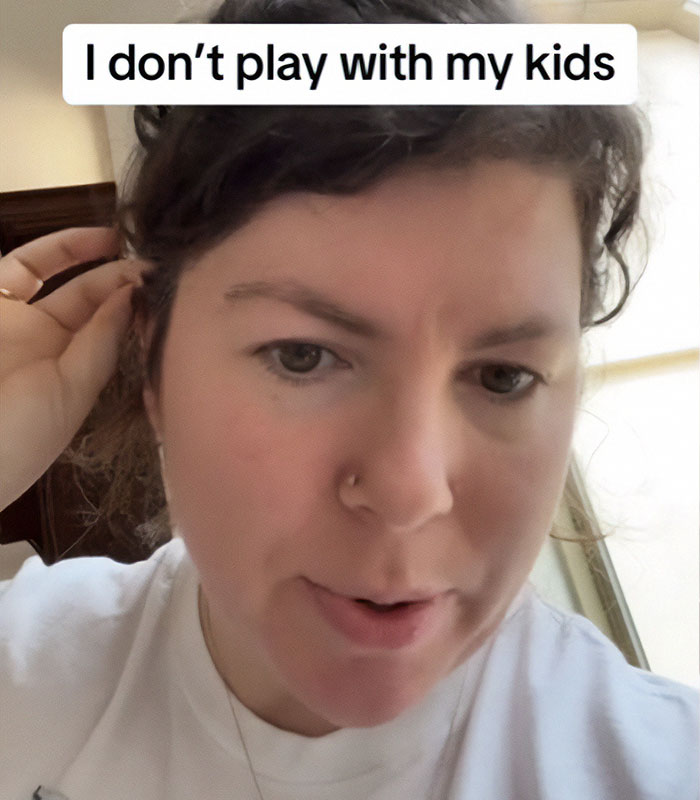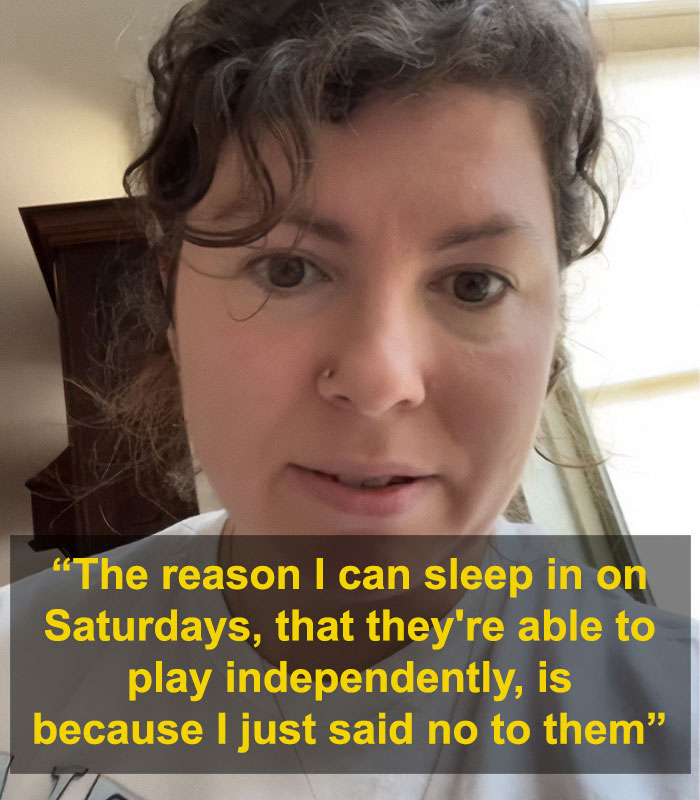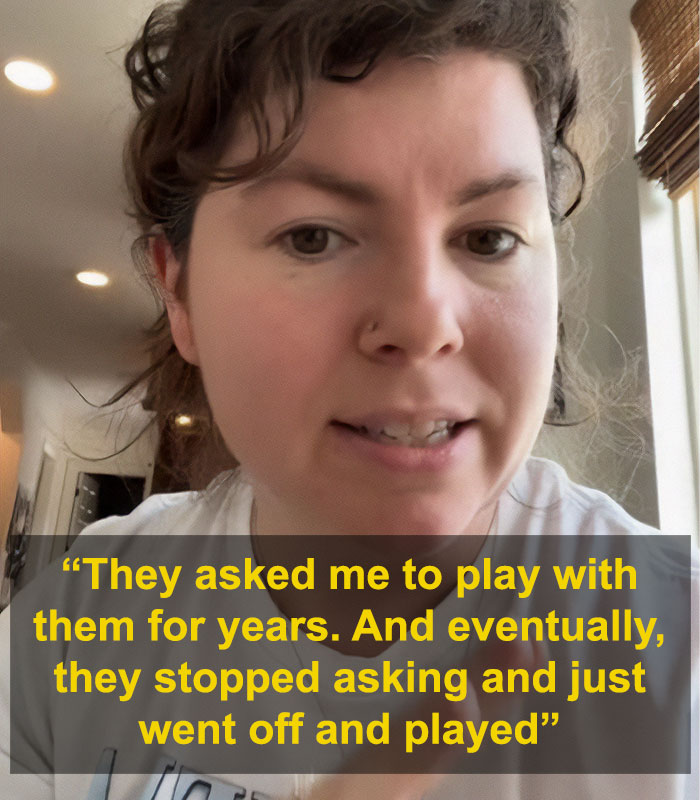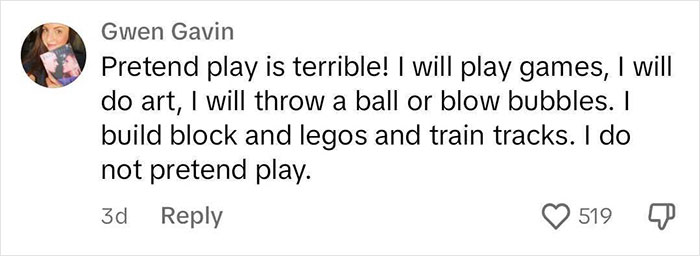K.C. Davis, author of the popular How to Keep House While Drowning book, took to her TikTok page on Monday (March 11) to post a video where she admitted that she had never played with her kids. In the now-viral video, which has amassed 916,100 views, K.C. revealed that she would tell her four and six-year-olds “no” over and over when they would ask to play with her. She explained: “The reason I can go and read a book while they play, that they’re able to play independently, is because I just said no to them.”
K.C. Davis sparked controversy by defending her decision not to play with her children
Share icon Image credits: prostoleh/freepik “Every single time they asked me to play with them for years. “And eventually, they stopped asking and just went off and played.” Nevertheless, K.C., who is a licensed counselor, clarified: “I’m not saying, ‘Don’t spend time with your kids.’ “I’m not saying, ‘Don’t be playful with your kids.’ I’m not saying, ‘Don’t connect with them.’ “Okay, I’m saying that I established a culture in my house that adults do not play with toys. Adults do not pretend to play.” Share icon Image credits: domesticblisters The advocate for mental health went on to explain that she bonded with her children in other ways, such as baking, doing art projects, and going on walks. K.C. and her husband just put together a solar system project for the kids “because they said they were interested in planets,” she added. She continued: “Then my husband set up a science experiment for them in the shower, and they’re now doing that by themselves. “We just ordered some Indian food and when they get out of the shower, I’ve got to probably get in bed and read a book and eat some Indian food with their dad, and they will be expected to just play like kids.”
K.C. emphasized bonding with her children through activities like baking and science projects
Share icon Image credits: domesticblisters The mom-of-two unveiled that alone time while children play independently was created through instances of rejection. She said: “Nobody tells you that the way that you get there is by saying no a lot and they’re sad about it and they’re mad about it.” K.C. continued: “I can tell you fast forward a couple of years, they are happy and creative and they have parents that are loving and responsive and they are secure enough to just go play and be kids.” The author warned against being an “a**hole” and just saying “no” coldly, suggesting to instead use sentences like, “No thanks, sweetheart. I just want to watch you play.” Share icon Image credits: domesticblisters The self-help expert’s candid revelations about parenthood weren’t appreciated by all of her viewers, as a TikTok user commented: “This is actually so sad.” Another person wrote: “Saying ‘they eventually stopped asking…’ like it was a positive thing is WILD.” A separate individual chimed in: “I had a mom who didn’t play. “She spent time with us ONLY in ways she enjoyed or found relevant as you mention here. “We don’t talk now that I’m an adult.”
You can watch K.C.’s video below:
Parenting coach Dr. Chelsey Hauge-Zavaleta said in a response video that she saw exactly where K.C. was coming from with her lack of interest in pretend play, as per Scary Mommy. Chelsey admitted: “The truth is, I don’t really do a lot of pretend play with my kids either. I don’t like it. “As a matter of everyday course, I would rather spend high-quality time baking, going on a walk, going to the zoo, or doing a project. “So, yes, play is important, but pick ways to play with your children that you also enjoy.” According to Christina Pay, an assistant professor in family and consumer sciences at Utah State University, play is essential to a child’s healthy development, and it is so important to optimal child development that it has been recognized by the United Nations High Commission for Human Rights as a right of every child. Christina highlighted knowledge from Dr. Michael Popkin, author of the Active Parenting series of parenting programs, which suggested that playing with your child builds the child’s self-esteem, helps the child learn about the world, provides opportunities for the child to learn new skills, and builds the bond between parent and child.
“To each their own,” a reader commented
Share icon Share icon Share icon Share icon Share icon Share icon Share icon Share icon Share icon Share icon Share icon Share icon Share icon Share icon Anyone can write on Bored Panda. Start writing! Follow Bored Panda on Google News! Follow us on Flipboard.com/@boredpanda!

















